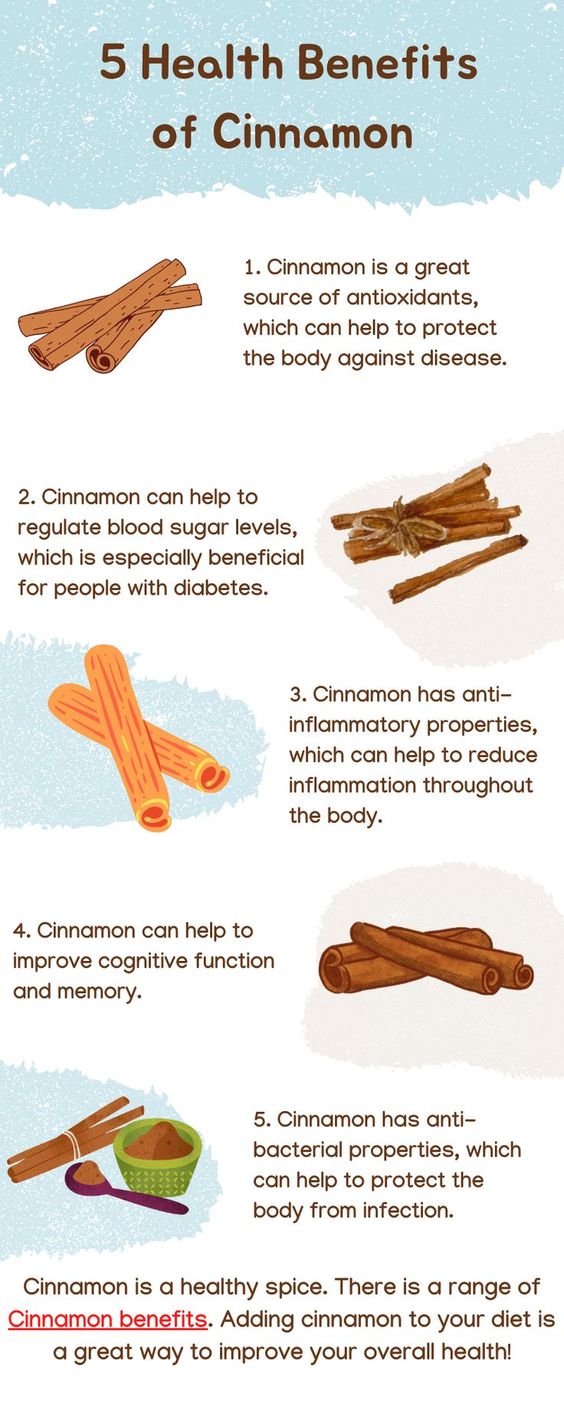Pregnancy makes even the most carefree souls a little more cautious – and with good reason. With a little one on board, you want to do everything possible to avoid harming your baby or yourself.
Benefits of cinnamon
- Fights microbes and parasites
- Fights free radicals and lowers inflammation
- Protects the liver
- Heals respiratory and digestive issues
- Heals wounds
- Lowers cholesterol and blood pressure
- Treats diabetes by improving insulin resistance and lowering blood glucose
- May regularize periods
This means being careful about eating certain foods and using specific herbs and spices – even seemingly innocuous ones like cinnamon.
Also Check: Having Mint During Pregnancy
Cinnamon, made from the bark of the Cinnamomum trees, is a great spice to liven up foods both sweet and savory. But it’s also taken for its therapeutic properties and is used in traditional and alternative medicines.
If you’re trying to improve your health and nutrition before getting pregnant, cinnamon can be a great addition to a healthy diet and regular exercise regimen. But is cinnamon safe during pregnancy?
Normal Food Amount Of Cinnamon Is Safe During Pregnancy

The U.S. Department of Health and Human Services suggests that adults limit their intake of cinnamon to 5 grams a day. The suggested acceptable range of 2 to 5 grams pertains to normal healthy adults who are not pregnant. Currently, there is not enough known about the specific impact of cinnamon on pregnant and lactating women; so, there is no specific guideline for this group.
During pregnancy, have as much cinnamon as you would generally have in food, but avoid cinnamon cookies and rolls or dishes using generous doses of the spice.
Most experts, including the U.S. Food And Drug Administration, agree that normal dietary intake of cinnamon during pregnancy or while nursing a child should be fine. However, you need to be cautious about consuming high medicinal or therapeutic doses of the spice through supplements. You should also consult your doctor about possible risks of taking cinnamon in each trimester.
But Too Much Cinnamon Disrupts Glucose Control During Pregnancy
One reason cinnamon is best avoided in large amounts is its impact on blood sugar levels. It has been seen that taking between 1 and 6 grams of cinnamon daily can lower the mean fasting serum glucose levels in diabetics in as little as 40 days.
And because it lowers blood glucose, it may cause issues with blood sugar control both during surgery and after. This can spell trouble for a woman having a cesarean section. Even if you plan on having a normal delivery, your doctor may have similar concerns in case you end up with any complications that necessitate emergency surgery.
For those already on medication to manage blood sugar (due to diabetes or other health issues), cinnamon could negatively interact with this medication as well.
Cinnamon Raises Bleeding Risk If You Take Blood Thinners

Doctors may suggest you stop consuming cinnamon for a couple of weeks prior to any scheduled surgery.
If you end up requiring a cesarean section or any kind of emergency surgery during your pregnancy, any cinnamon in your system could increase your risk of bleeding. If you are taking any kind of blood thinners like antiplatelet agents or anticoagulants, cinnamon could also lower platelet count and raise your risk of bleeding.
Also Read: Complications of Pregnancy NCLEX Questions
Cinnamon May Interfere With Your Medication
If you regularly take any medication, you’ll want to consult your doctor first before consuming cinnamon while pregnant. The spice could potentially interact with the medication and cause adverse reactions. There are no specific drugs listed on this front, so it’s best to check with your doctor about possible interactions. As in the case of certain diabetes medication, cinnamon may even interfere with the proper action of the drug.
Cinnamon Can Set Off Allergic Reactions
You’ll want to be careful about starting the use of cinnamon while pregnant because it could cause an allergic reaction in some people. In fact, the National Center for Complementary and Integrative Health warns of allergies to cinnamon; so it isn’t as uncommon as you may think. In case your body is sensitive or allergic to the spice, it could make you ill or uncomfortable – something you definitely don’t want to deal with while pregnant.
Cinnamon allergy isn’t uncommon. In fact, it is the most common spice allergy. Even if you weren’t allergic to it before, pregnancy can make you sensitive to it.
It can set off an inflammation and burning sensation in the mouth (allergic contact stomatitis) if you are allergic to cinnamon. In some people, cinnamon allergy can lead to lesions in the mouth. Symptoms disappear when you discontinue using the spice.

Too Much Cinnamon May Raise The Risk Of Miscarriage
When it comes to cinnamon and pregnancy, the main concern is often the spice’s abortifacient effects, which could increase the risk of miscarriage. Cinnamon stimulates menstrual flow, and a group of experts cautions that large quantities of cinnamon may likely be unsafe.
When we say large amounts, it means more than the amount you would normally consume in food. Don’t take cinnamon supplements during pregnancy unless so advised by your doctor.
Ayurveda also suggests that cinnamon should be avoided in large amounts while there’s a baby on board.
However, there is little research on the potential risk of cinnamon on pregnant women. And Ayurveda also recommends the spice as a cleansing treatment after childbirth to purify the uterus.
While more extensive research is needed to understand the full effects of cinnamon on pregnant women and lactating mothers, it’s best to err on the side of caution and limit your overall intake to what you’d normally consume in your diet. Avoid medicinal doses or supplements of cinnamon during pregnancy.
Read More Posts:
